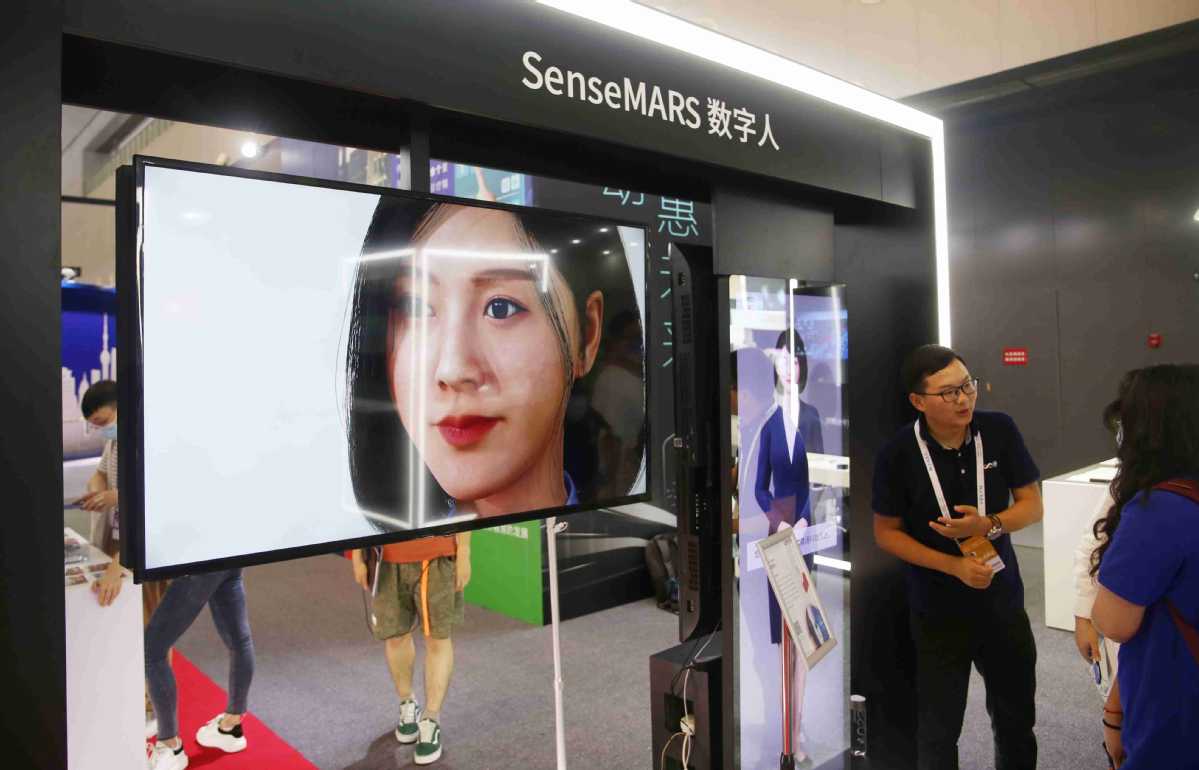Xiaoice: Artificial intelligence assistants to outnumber people


Digital humans are becoming a new interface for human-computer interactions, and possess the immersive experience of the integration of digital and real worlds, experts said.
Harry Shum, chairman of Xiaoice and former executive vice-president of Microsoft, said just as Microsoft predicted in 1975 that everyone would have a personal computer in the future, the company believes that everyone will have a personal artificial intelligence assistant in the future.
"The number of AI beings will even exceed the entire global population in the future because people may need different AI beings to satisfy different demands in the future," Shum said.
He said AI-human interactions will become ubiquitous in the future and virtual AI assistants will be common in hardware such as automobiles and home appliances, as well as in a variety of software and applications. In such an era, digital humans are expected to be the new interface for human-computer interactions.
The comments came as digital humans are becoming more prevalent in China. Virtual anchors, virtual employees and virtual idols are currently the most popular applications of digital avatars in China, according to a report released by the key laboratory of media convergence and communication at Communication University of China.
The three categories are currently the types with the highest commercialization value of digital avatars, which attract the strongest participation of enterprises and capital, the report added.
For instance, Chen Rui, chairman of Bilibili, a popular Chinese short-video platform, said in June 2021 that as early as 2020, 32,412 virtual hosts performed on its platform, marking a year-on-year increase of 40 percent. They play games, dance, sing, paint, chat and interact with fans.
The report forecast that with technological advancements, virtual humans will play a role in more sectors, such as consumer goods, finance, real estate, property, education, cultural tourism and other service industries.
Yu Jianing, co-author of the book Metaverse and principal of Huobi University-an educational and research institution focusing on frontier technologies-said the accelerated application of 5G and the research and development of 6G, the next generation of wireless technology, will fuel the digital human industry.
"Although the digital avatar segment is still in a nascent stage, the appearance, gestures and actions of digital humans are getting more refined and closer to those of real humans," Yu said.
Virtual characters, for instance, have already evolved from simple electronic figures to more intelligent and lifelike images. Digital humans can now engage in a whole range of anthropomorphic body language, backed by AI that can interpret input and produce not just straightforward responses but appropriate nonverbal actions as well.
Digital humans will no longer be limited to cultural and creative fields such as virtual idols. Instead, they will become integrated with a variety of industries to boost the real economy, Yu said.
The booming development of digital humans in China also comes with policy support. The National Radio and Television Administration said in a plan in October that China will promote wider application of virtual anchors and animated sign language presenters in the production of news broadcasting, weather forecasting, variety shows and science and education programs.
Li Shiyan, director of Baidu's Intelligent Cloud AI human-computer interaction laboratory, said user demand and technological advances have become the core driving forces in the digital human sector.
Several AI-powered technologies like natural language recognition, voice interaction and intelligent recommendation have been utilized to create digital avatars, which boost efficiency and lower costs, according to Baidu. The company announced the debut of its first AI sign language anchor during the Beijing 2022 Olympic and Paralympic Winter Games to introduce competitions for hearing-impaired people.
The increasing popularity of digital humans comes as AI is seeing wider commercialization across various sectors in China. The nation will become a major mover in global AI development and make up 15.6 percent of the global market by 2024, according to a report jointly released by global market research firm International Data Corp and cloud computing and big data supplier Inspur Group.
The market scale of China's AI sector is expected to maintain a compound annual growth rate of 30.4 percent to reach $17.22 billion by 2024, according to the report.




































